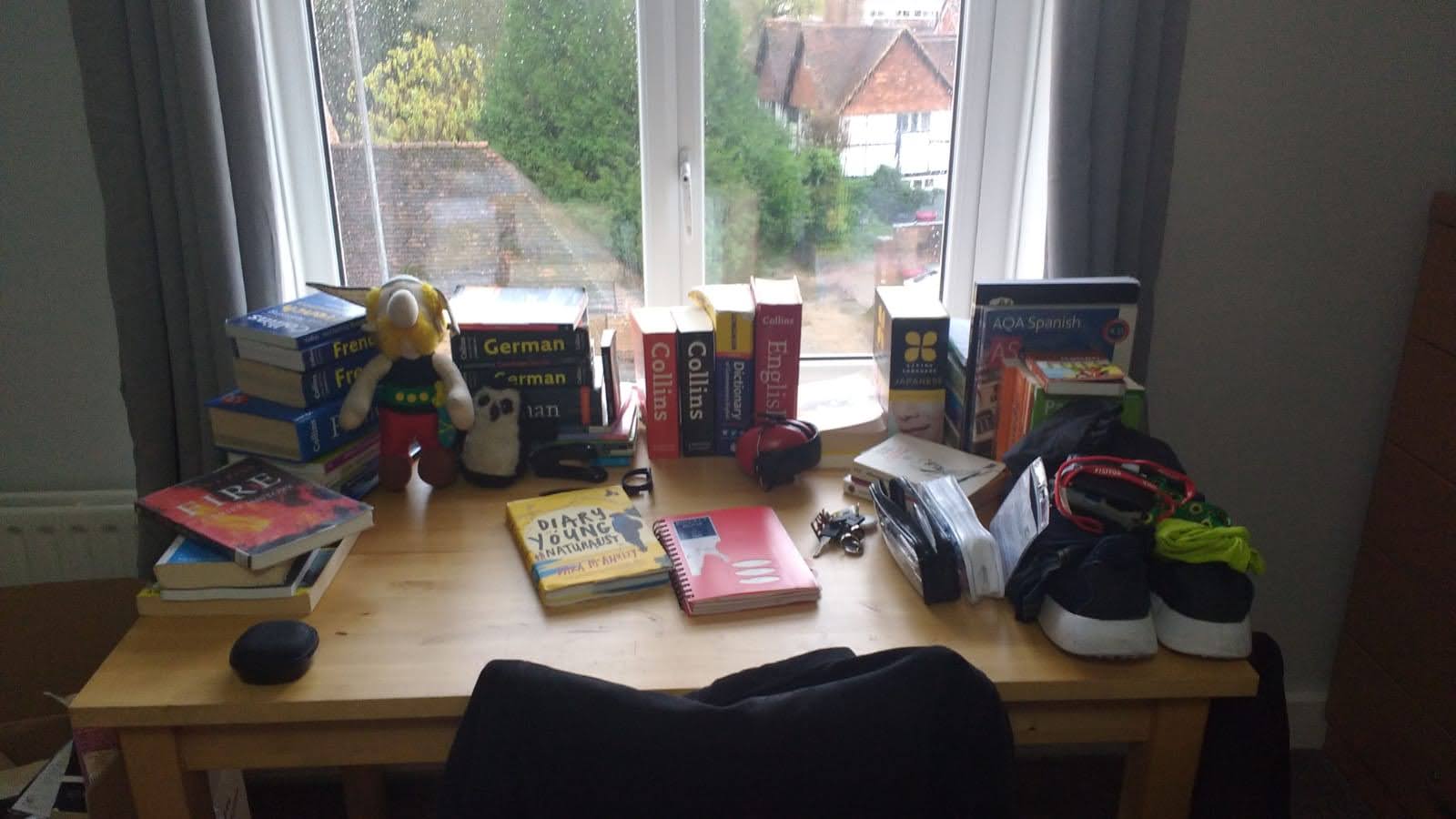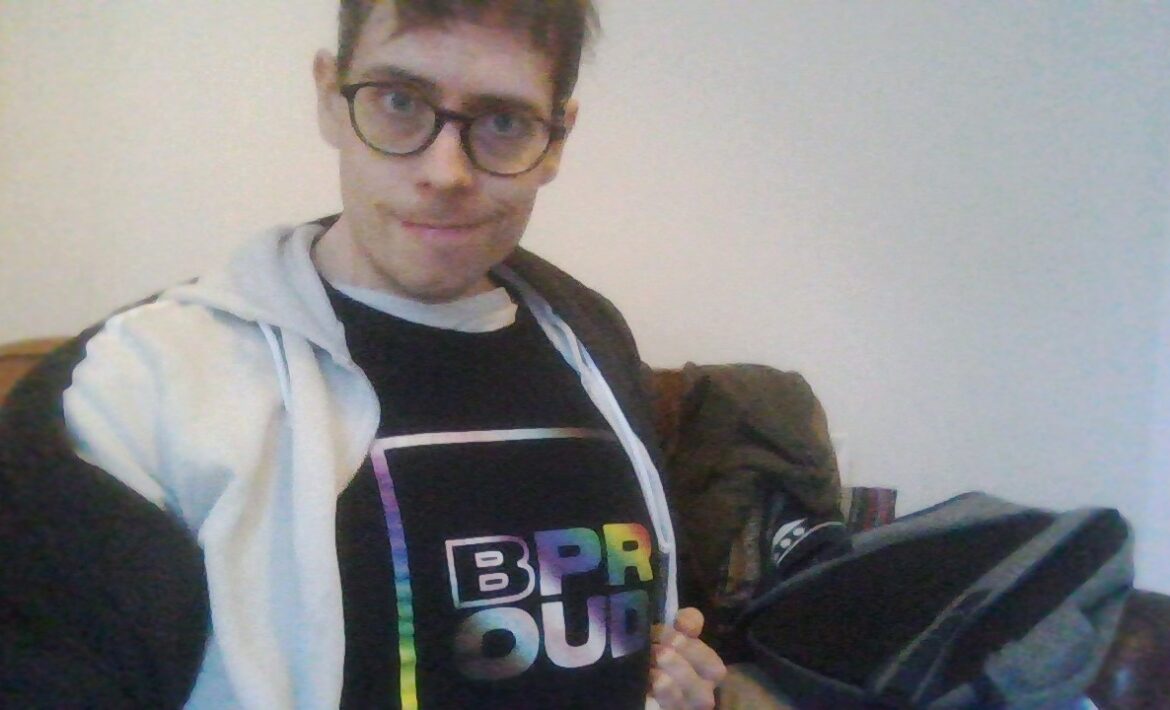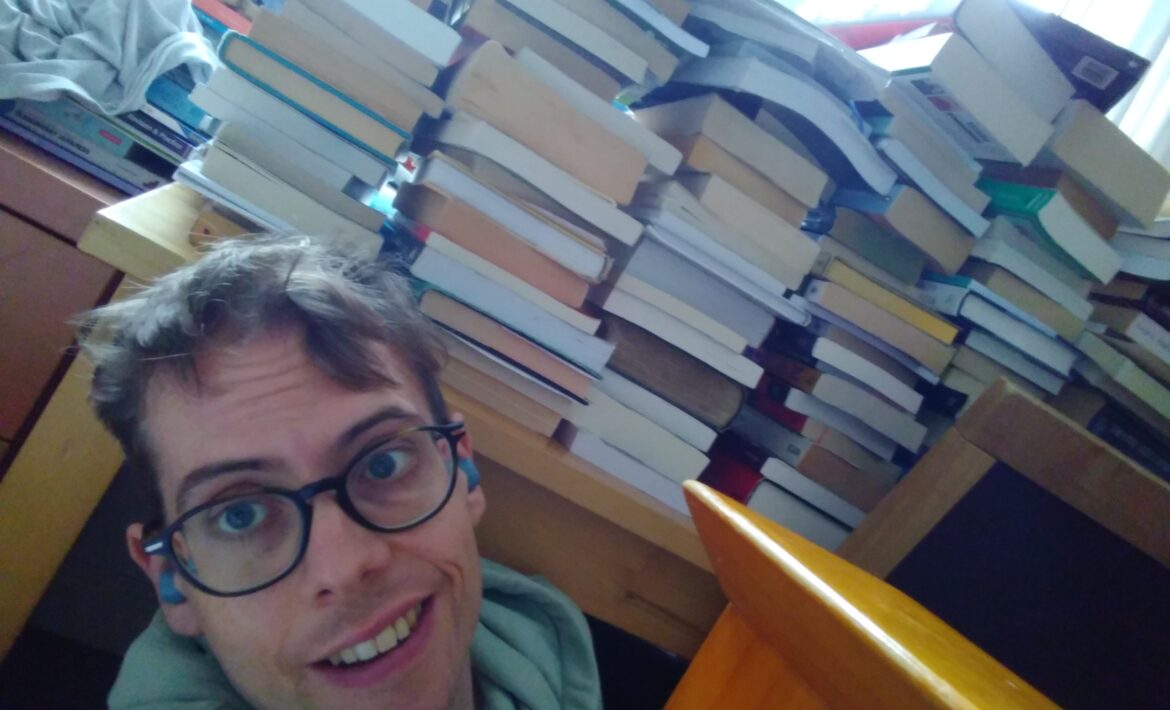
Sunday 15th November 2020 – Autistic in Times of Covid-19: New Job + Finishing a Book
Hello everyone!
It’s been a while, hasn’t it? I’ve kept myself busy. I have a new job, teaching German and French at a school not too far away from me. Yes, it’s the one I interviewed for a month ago. I was supposed to start tomorrow, but I was called in to do supply teaching twice last week. My body was exhausted on Friday, since there were so many new people and rules to internalise. I did very well, but I need to make sure I have quiet spaces to destress between classes. The staff room is lovely, but since it is full of people, I’ll need to take breaks away from it. This is not because people are unfriendly or unkind, but because human beings, especially ones I don’t yet know very well, are exhausting.
I will not speak about the students at all, because they deserve their anonymity. Suffice it to say that they’re brilliant and that I’m looking forward to working with them for the rest of this academic year.
Since finishing the last blog, I did my last week of teaching at EF. I managed a full three years there. That was a record. I never worked anywhere for more than a year. Often I didn’t manage more than a few days or weeks. This was because I was trying to mask and, because I was so frightened of losing the job, my anxiety would get the better of me. I would be told that I wasn’t “well enough” to work. Only once was I fired for taking medication on the job. I had been instructed to do so by my GP, so I went into the staff room when anxiety got overwhelming. I was sent home immediately for drug use at work. The agency I had worked for was not willing to listen to my pleas. I needed to show that I “could do it”. This was of course open discrimination. But it’s very common.
EF, however, was different. I had gotten myself sectioned in October 2017, as punishment for losing yet another job (the seventh in a year). I was told by a psychiatrist present that I should never have been on the combination of medication I was on: quietiapine and escitalopram. I was on that combination for 5 and a half years, no-one ever bothered to google the negative interactions between those two. I was released the morning after and went home to rest. That was a Friday. I had my interview at EF on Wednesday. I was clearly not 100% well, and said so. But still, I was hired. There, I found a group of people who actively welcomed me in. It was strange. The first day, I had a conversation with other members of staff, including one who has bipolar 2 and had a huge panic attack during the summer peak season. He was weeping against the printer, he said. He was allowed to go home, then, when he felt better the next day, to come back. As if nothing had happened. My jaw was on the floor. I couldn’t believe this was a possibility. In the past, I found that working in places with zero knowledge of autism or mental health was preferable, since the places that knew a bit would use that knowledge to exclude me. But no. I was even allowed to take time off in November that year to change medication from escitalopram to sertraline. My anxiety has been far more manageable since then.
I ended up being scheduled for part-time hours, often helping out teaching cover lessons as well. A stable job – and more so, a stable income – meant that I was able to settle. I was no longer one missed pay check away from catastrophe. It’s banal, yes, but money matter. If anything, this is another argument for universal basic income. Money doesn’t buy happiness. But not having money means living in constant fear. Autistic people are more aware of undeniable problems, especially ones we have no immediate power to solve – if we did, we would have done so. Anxiety, for me, is about the things I don’t have control over. That’s always seemed obvious to me, but apparently most people have the power to not even register those fears.
At EF, I was able to build a strong support network of kind people. I was supported with my specific needs and allowed to recuperate if I was unwell. That was huge. I was a valuable member of the team. When I worked at Oxford Health, I was able to combine this with my teaching work. I also became very good at language teaching. There is no better way to learn something than to teach it. The book is hopefully an example of that. At the same time, I also worked as a tutor. I maintained tutees I had before I joined the school and worked with new students as well. When I had therapy through the NHS (mentalisation – this requires its own blog entry!) I was allowed to take time off to go in to these sessions.
I worked a lot. I had few holidays. I had to plan lessons in my own time, unpaid. But the pay was more than I had ever made. Having weekends off was also a benefit. I exercised most days and was able to put time into my friendships and, of course, the book. I stabilised during these three years. Most importantly: it showed me that I had value. Real, economic value. That seems dumb and vapid. But I learned that I did not need to grovel when someone employed me, out of gratitude for merely paying me money to survive. Many autistic people, at the start of contracts, worship their supervisors for simply allowing them to work. That is understandable – we are routinely excluded from paid employment, the numbers don’t lie. But it also puts those supervisors under real emotional strain. To be reminded of the real power they have over us makes supervisors wince. It is an over-investment on our side, a too-great expression of loyalty that paradoxically makes others move away from us. It’s important for all autistics to have other things to occupy their brains while employed, in order to not hyperfocus on the job alone.
I want to use this blog to thank everyone I worked with at EF, the students and staff and my supervisors. This job was often exhausting and there were many misunderstandings. But it was also the making of me. It meant I was able to get physically and mentally well. I was able to contribute to the lives of literally hundreds of students. It made me an autistic activist. I learned how to excel at being a teacher. I am very grateful to everyone who was there to support me and I hope to see you all again, soon.
BOOK!
I had planned to take two weeks off anyway before I even got the interview last month. These two weeks I had set aside to finish my novel. I needed to. I could afford to, my partner was happy for me to do it, if I didn’t I would continue to be irritated with myself for not having done it yet. I spent the first few days recuperating mentally. September and October were relentless, the commute was exhausting, I needed some time to breathe. I then spent the next few days researching Van der Lubbe and getting back into the world I created. I also set up my desk upstairs to write and read in peace (see image above).
I realised pretty late in the writing process that I’d already written a full book, it was just scattered across various notebooks in longhand. In the end, I can’t have added more than 15,000 words, while cutting plenty more. It was intense, exhausting and frustrating at times. But so rewarding. I spent two weeks pretty much completely in the world of the book. I finished it on Saturday last week. My partner was out on a walk. I went downstairs, a little weepy, then found out that Trump had lost the election. I called my partner, then walked up to see him along Thames path. We celebrated with Persian food and cuddles.
The book is done. I will now forever be a person who finished a novel. I had nightmares about dying before the book was finished, which I know is kind of pathetic, but it shows just how deeply I care about it. It’s the most powerful expression of what I’ve wanted to say for decades but didn’t have the language for. It is the best thing I’ve ever done. I’m looking forward to hearing back from the agents I’ve sent the work to. I’m expecting rejections, because that is just how these things work. But I hope that at least one sees how much this book is needed right now and that the time has come for autistic writers writing autistic fiction. Camilla Pang, Dara McAnulty, Naoise Dolan, Madeleine Ryan and Corinne Duyvis’ success shows that there is a market for autistic writing. We are finally coming out of the shadows. Best of all: I’m already excited to start its sequel, set five years later. I am looking forward to spending more time in the heads of Sara, Frank and Van der Lubbe. With any luck, not too long from now, you will as well.
Lastly, some great news. Matthew Rushin will receive a pardon from the governor of Virginia. After two years of hell, he will come home. I am so proud of him, his family and everyone who came together to support him. I hope he gets the time to recover, undo some of the damage done to him and find his way back to making the world a better place.
Osime Brown, however, is still vulnerable to being deported. Whether or not you are in the UK, please sign this petition: https://www.change.org/p/home-office-stop-the-deportation-of-vulnerable-autistic-man-osime-brown-2f671100-bd95-423c-a547-c8b04da2a75a
Also please donate to Osime’s mother’s gofundme and if you are in the UK, write to your MP. I have, my MP wrote a non-answer in response. Keep pushing. They need to add their names to an Early Day Motion designed to keep Osime home in the UK. I wrote back immediately asking for clarification. Don’t let them get away with not acting.
All my love and see you next week!
Jorik


